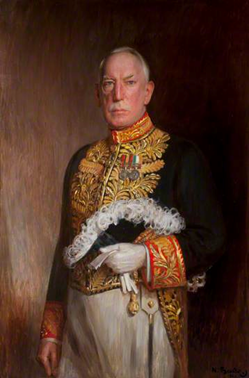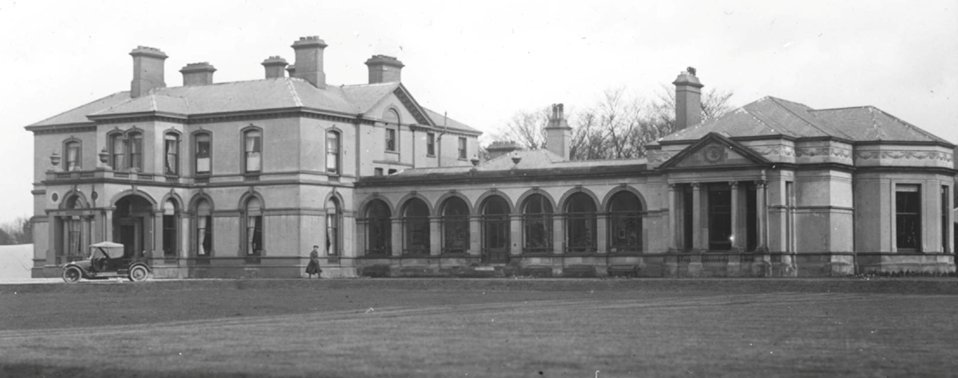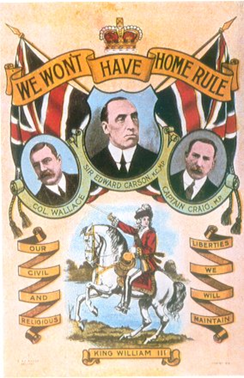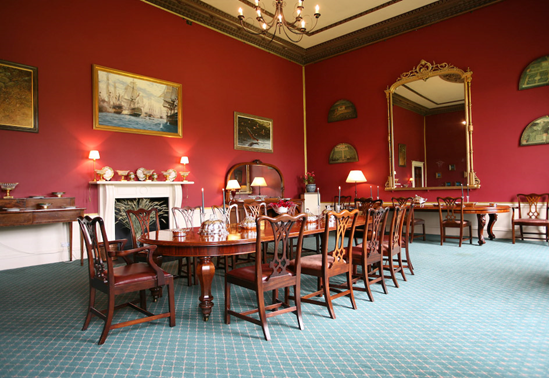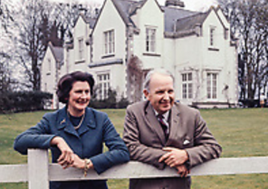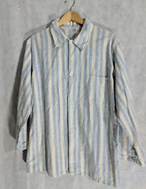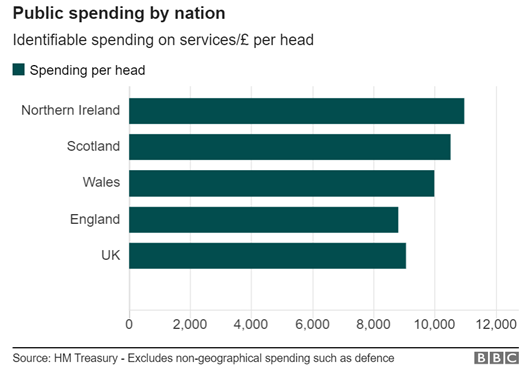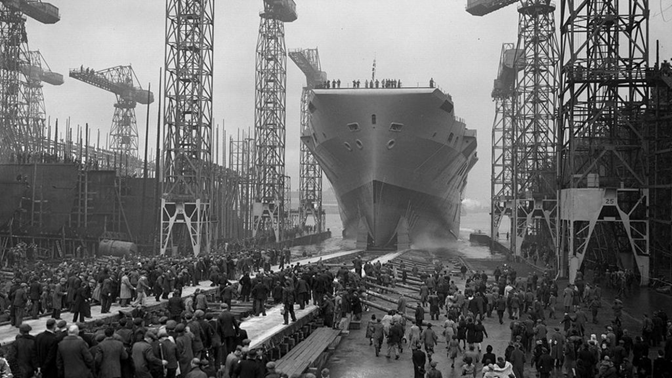I’ve heard it said that Northern Ireland’s economic decline is the result of the Troubles. But they themselves were the result of a rotten political system. And nothing exemplified this more than the office of prime minister of NI. THREAD. https://abs.twimg.com/emoji/v2/... draggable="false" alt="👇" title="Down pointing backhand index" aria-label="Emoji: Down pointing backhand index">
https://abs.twimg.com/emoji/v2/... draggable="false" alt="👇" title="Down pointing backhand index" aria-label="Emoji: Down pointing backhand index">
Six served between 1921 and 1972, when direct rule was imposed. An what marked them all out was what they had in common: all were men, all were Protestant, all were Orangemen, all were privately educated, all came from privileged backgrounds and all were from the UUP. 2/
The terms ‘elite’ and ‘establishment’ are abused and misused nowadays but they genuinely applied to all six Northern Ireland PMs. In many ways, NI was a feudal democracy, where a select group of patrician plutocrats held the levers of power. 3/
This picture of the 1969 cabinet of Major James Chichester-Clark speaks volumes about the make-up of UUP cabinets during the party’s 51-year rule. Of 99 ministers in that period, there was only one woman: Dame Dehra Parker, Chichester-Clark’s grandmother. 4/
The North’s six PMs were mostly concerned with issues such as cementing partition, gerrymandering constituencies and – openly in some cases – ensuring Catholics remained second-class citizens. Economic development appears to have often been an afterthought. 5/
The first was blubber-faced Jim Craig, who inherited £100k aged 29. A baronet on becoming PM, in June 1921, he carried on until his death, aged 69, in Nov 1940. Educated at Merchiston in Scotland – boarding fees today are £35k – his family pile was Craigavon House, Armagh. 6/
Craig is famous for his saying that "We are a Protestant Parliament and a Protestant State." It is commonly misquoted as “A Protestant parliament for a Protestant people.” 7/
Less well-known is what he said immediately afterwards: "It would be rather interesting for historians of the future to compare a Catholic State launched in the South with a Protestant State launched in the North and to see which gets on the better and prospers the more." 8/
When WWII broke out, Craig urged Churchill to impose conscription in the North and invade Ireland. Friends feared for his mental health and Lady Londonderry is said to have claimed he had gone ‘ga-ga’ by the time he died. He was followed as PM by John Andrews. 9/
Although a nephew of Viscount Pirrie, he was one of the humbler PMs. Educated at RBAI in Belfast – fees today are £1k – he was a devoted Orangeman and became Imperial Grand Master of the Grand Orange Council of the World. He ruled until May 1943, forced out by a heave. 10/
His brother, Thomas, designed the Titanic and went down with it – Thomas Garber played him in the 1997 movie. Thomas is a bit of loyalist icon as can be seen in this Orange banner. The family pile was Maxwell Court, Down, which was on the market a few years ago for £1.25m. 12/
Replacing John Andrews was Basil Brooke, a baronet and the most privileged NI PM. Ruling until March 1963, he was considered a hardline anti-Catholic as well a lazy and ineffectual. He studied at Winchester in England – fees today are £31k – before enlisting at Sandhurst. 13/
Brooke’s family estate was the lavish Colebrooke Park, Fermanagh, where he boasted of engaging in discriminatory employment practices. 14/
Speaking to Orangemen – he was a member of Hanover LOL 1639 – in 1933, he said "Many in this audience employ Catholics, but I have not one about my place. Catholics are out to destroy Ulster...If we in Ulster allow Catholics to work on our farms, we are traitors to Ulster." 15/
It should be noted that Brooke’s was a life tinged with tragedy as two of his three sons were killed in action in WWII. Years later, he spoke of his regret for his sectarian words. 16/ https://www.youtube.com/watch?v=nPYhv7qrCTk">https://www.youtube.com/watch...
Brooke’s premiership was marked by the decline of the North’s industries. His successor, Terence O’Neill, said of him: "He was a good raconteur, and those who met him imagined that he was relaxing away from his desk. However, they did not realise that there was no desk." 17/
O’Neill himself was yet another scion of landed gentry, his family hailing from Shane’s Castle – of Game of Thrones fame – in Antrim. The barons O’Neill were the greatest landowners in the county, with 64,163. 18/
He was educated at Eton in England – fees today are £42,501 –and was considered a modernising bridge builder by UUP standards. He even met two taoisigh, which led Ian Paisley to quip: “A traitor and a bridge are very much alike for they both go over to the other side.” 19/
All said, he wasn’t averse to patronising statements: "It is frightfully hard to explain to Protestants that if you give Catholics a good job and a good house, they’ll live like Protestants because they’ll see neighbours with cars and TVs; they’ll refuse to have 18 children. 20/
“But if a Roman Catholic is jobless, and lives in the most ghastly hovel, he will rear 18 children on National Assistance. If you treat Catholics with due consideration and kindness they will live like Protestants in spite of the authoritative nature of their Church". 21/
But by May 1969, O’Neill’s ‘liberalism’ and rapprochement with the south had made his premiership untenable, and he was replaced by Major James Chichester-Clark. The last of the big house landed gentry to be prime minister, he would be a reluctant leader. 22/
Another old Etonian, his family’s estate was Moyola Park in Derry. He inherited his South Londonderry seat, which was represented by three generations of the same family for the entire period of the Northern Ireland House of Commons. 23/
It was under his premiership that Troubles gathered momentum and he was forced to act by the British government to the extent that under him "there were more reforms pushed through in 50 days than in the previous 50 years”. 24/
But it was too little, too late and by March 1971, he was forced to resign by the three-pronged pressures of the British government, hardline unionists and the PIRA campaign. His replacement was the ‘commoner’ Brian Faulkner. 25/
While not landed gentry, Faulkner wasn’t exactly down at heel. His family owned Faulat, which had been the largest single purpose shirt manufacturer in the world, and he lived in the none-too-shabby Highlands Estate, Down. 26/
Surprisingly for a northern Presbyterian, he was educated at St Columba’s in Dublin – fees today are €24k – where his best mate was Michael Yeats, son of William. Faulkner ruled for just one year – enough to introduce internment and oversee Bloody Sunday. 27/
These disasters led to the introduction of direct rule by Westminster, making Faulkner the last PM of NI. He would later be open to power sharing and founded his own party, which fared poorly. He was killed in a hunting accident in 1977 when he fell off his horse. 28/
So, to put it all in context. At partition, the six counties accounted for 80% of the island’s industrial output. In contrast, exports of goods and services from RoI are now €282.4bn, while NI exports €10.1bn. While the North’s GDP is €43bn, the Republic’s is €324bn. /29
What’s more, If the North had to pay for itself, its budget deficit would be 27% of its GDP – a shortfall covered by the UK exchequer to tune of about £11bn pa. A lot of this is through public sector jobs. In NI 27% work for the public sector, in RoI it’s 19.5% and UK 21.5%. /30
The above reflects a catastrophic fall in manufacturing employment since the 50s. NI failed to adapt to changing times and suffered massive deindustrialisation. There were no leaders with fresh ideas and an old boys’ network meant that talent often didn’t rise to the top. /31

 Read on Twitter
Read on Twitter
